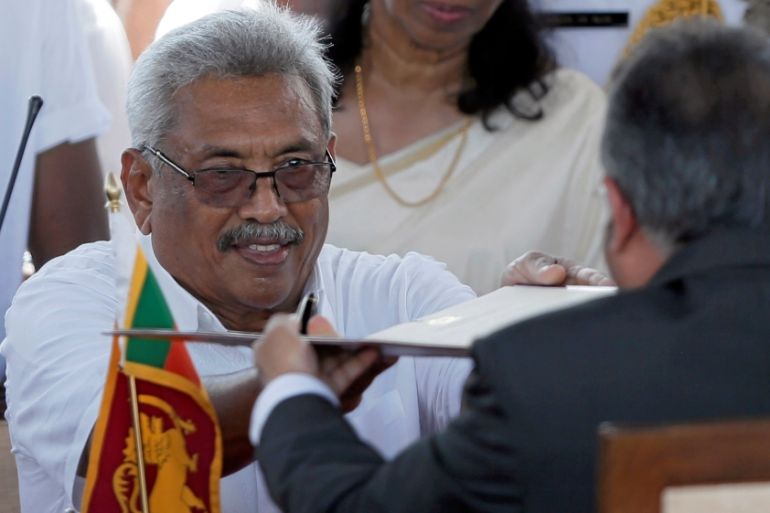Sri Lankan parliament dissolved; elections set for April
Dissolution ordered by President Gotabaya Rajapaksa came six months before parliament’s term ended.

Sri Lanka’s president dissolved parliament with on Monday and called for new parliamentary elections six months early.
President Gotabaya Rajapaksa, who was elected in November, made use of his constitutional powers to dissolve parliament and called for elections on April 25.
Keep reading
list of 3 itemsSri Lanka presidential election
In Sri Lanka, presidential election deepens religious divisions
The constitution gives powers to dissolve Parliament after completing four and a half years of a five-year term.
Rajapaksa was elected to office last November but has said he cannot work freely because his powers have been reduced. He has also faced restrictions because the opposition commanded a majority in the 225-member parliament.
The new parliament will meet on May 14, the election commission said in a statement.
The election campaigning period will include the first anniversary of a series of suicide bombings on Easter Sunday last year that killed more than 250 people in churches and tourist hotels.
|
|
Rajapaksa rode to power criticising the previous government for serious security and intelligence lapses that preceded the bombings. It was the worst violence in Sri Lanka since the country’s 26-year civil war ended in May 2009.
Constitutional changes initiated by Rajapaksa’s predecessor, Maithripala Sirisena, reduced presidential powers, giving them to the Parliament and independent commissions.
The change virtually created two political power centres – the president and the prime minister, with the prime minister in charge of parliament and government ministers.
Rajapaksa’s brother, former president Mahinda Rajapaksa, is the prime minister and leads a minority government.
Rajapaksa needs two-thirds parliamentary support to pass any changes to the Constitution.